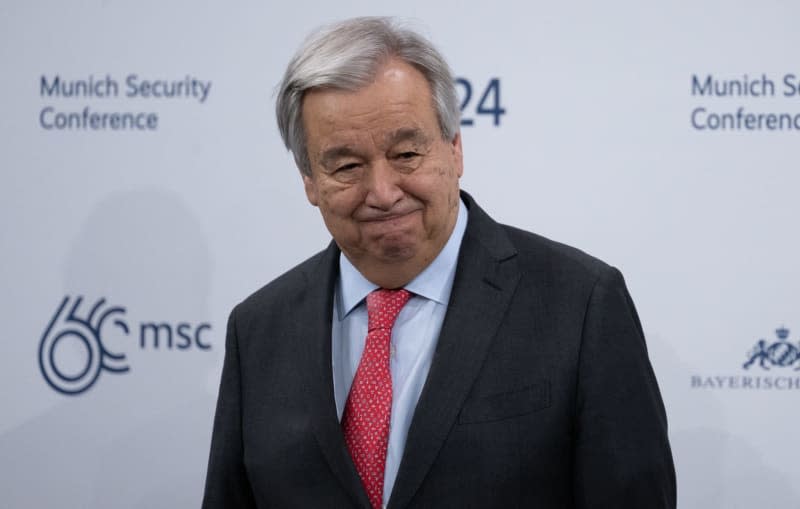UN chief opens high-level meeting on Afghanistan in Doha

- Oops!Something went wrong.Please try again later.
A two-day meeting of various countries' special representatives for Afghanistan, chaired by UN Secretary-General António Guterres, began in Qatar on Sunday, according to a UN spokeswoman.
According to the UN, the objective of the meeting is to discuss how to approach increasing international involvement in Afghanistan.
The Taliban government in Kabul has declined to participate in the meeting, citing unmet conditions. The Taliban wanted to be recognized "as the sole official representative of Afghanistan" and to hold talks with the UN about "all issues on a very senior level."
Afghan women and civil society representatives are also expected to attend the meeting.
Rights groups urged the UN to ensure women's rights are central to all discussions.
In December, the UN Security Council adopted a resolution requesting the UN secretary-general to appoint a special envoy for Afghanistan.
The Taliban opposed the possible appointment of a UN envoy, reasoning that there is no need for another special envoy given the presence of the UN diplomatic mission in Kabul (UNAMA).
Most recently, the UN Special Coordinator Feridun Sinirlioglu in an assessment report recommended a road map for reintegrating Afghanistan back into the international economic and political system, contingent on the Taliban meeting Afghanistan’s international obligations.
Since returning to power in 2021, the Taliban have rejected calls for the formation of an "inclusive government" and to ensure women's right to education and work. As a result, no country has recognized their government. The country’s banking reserves are frozen in the West, and senior Taliban leaders are on US wanted lists.

